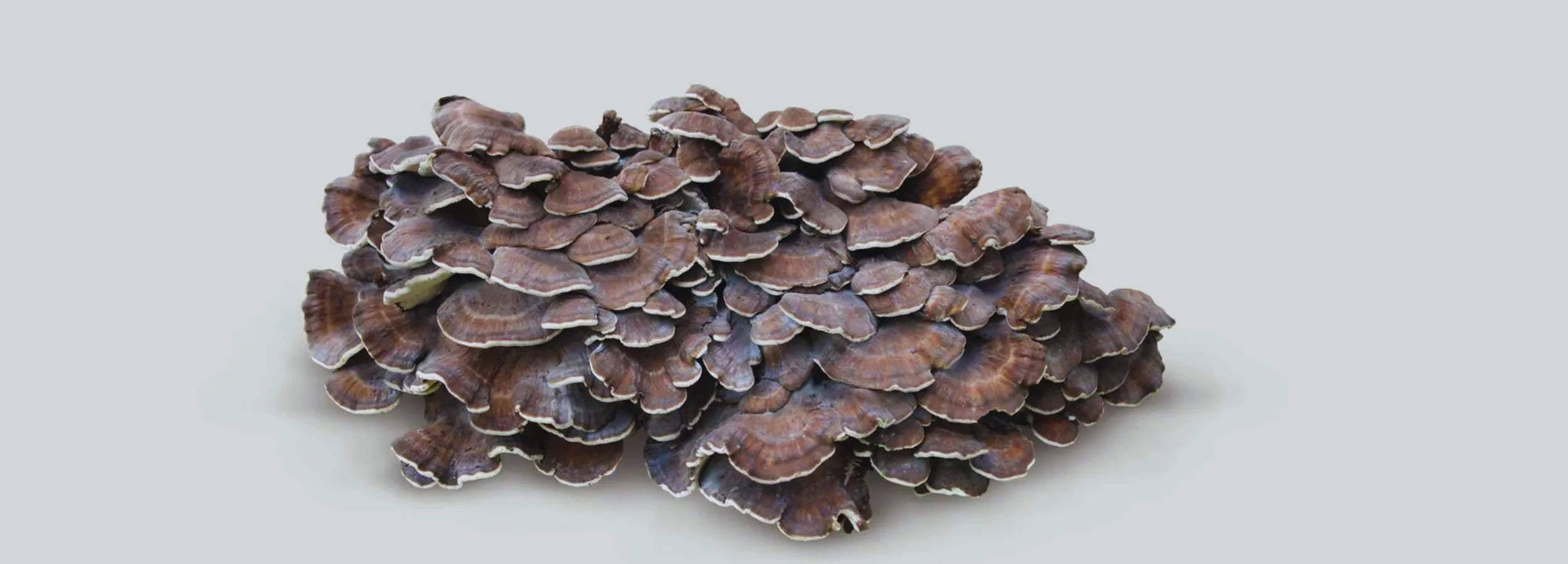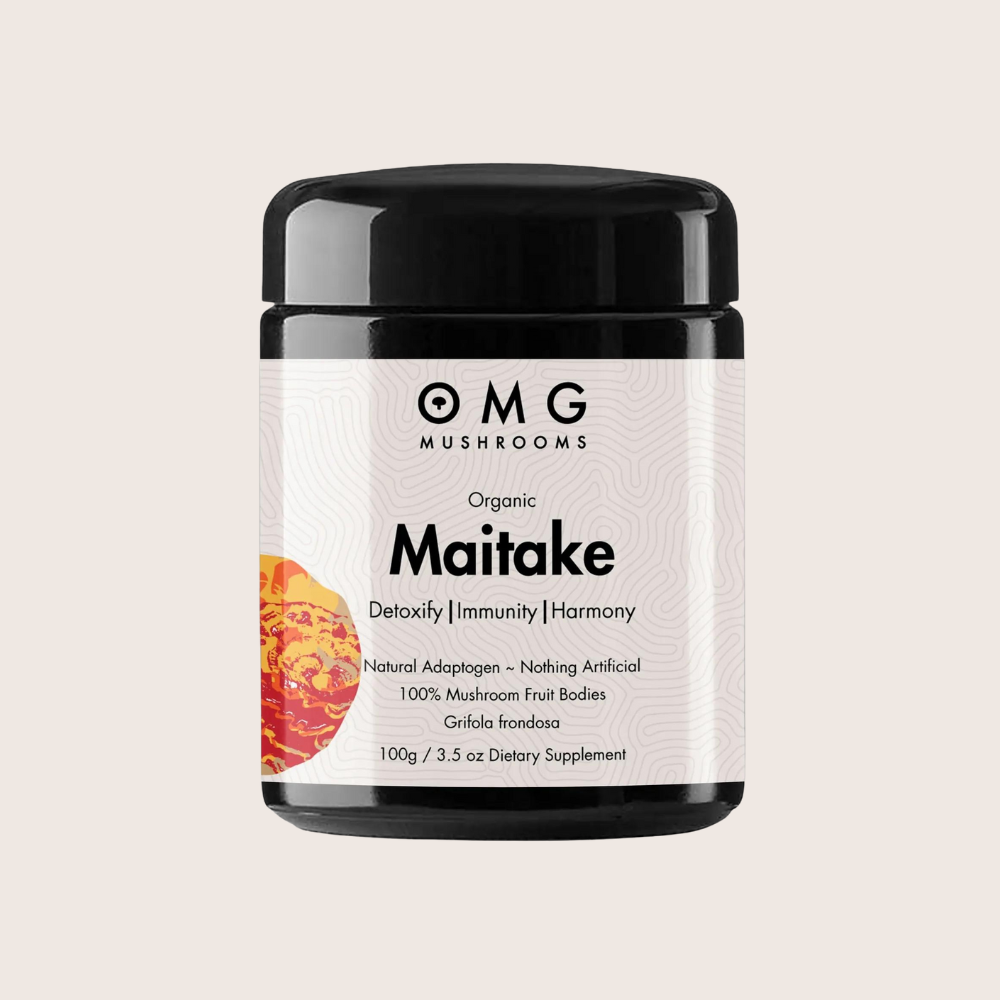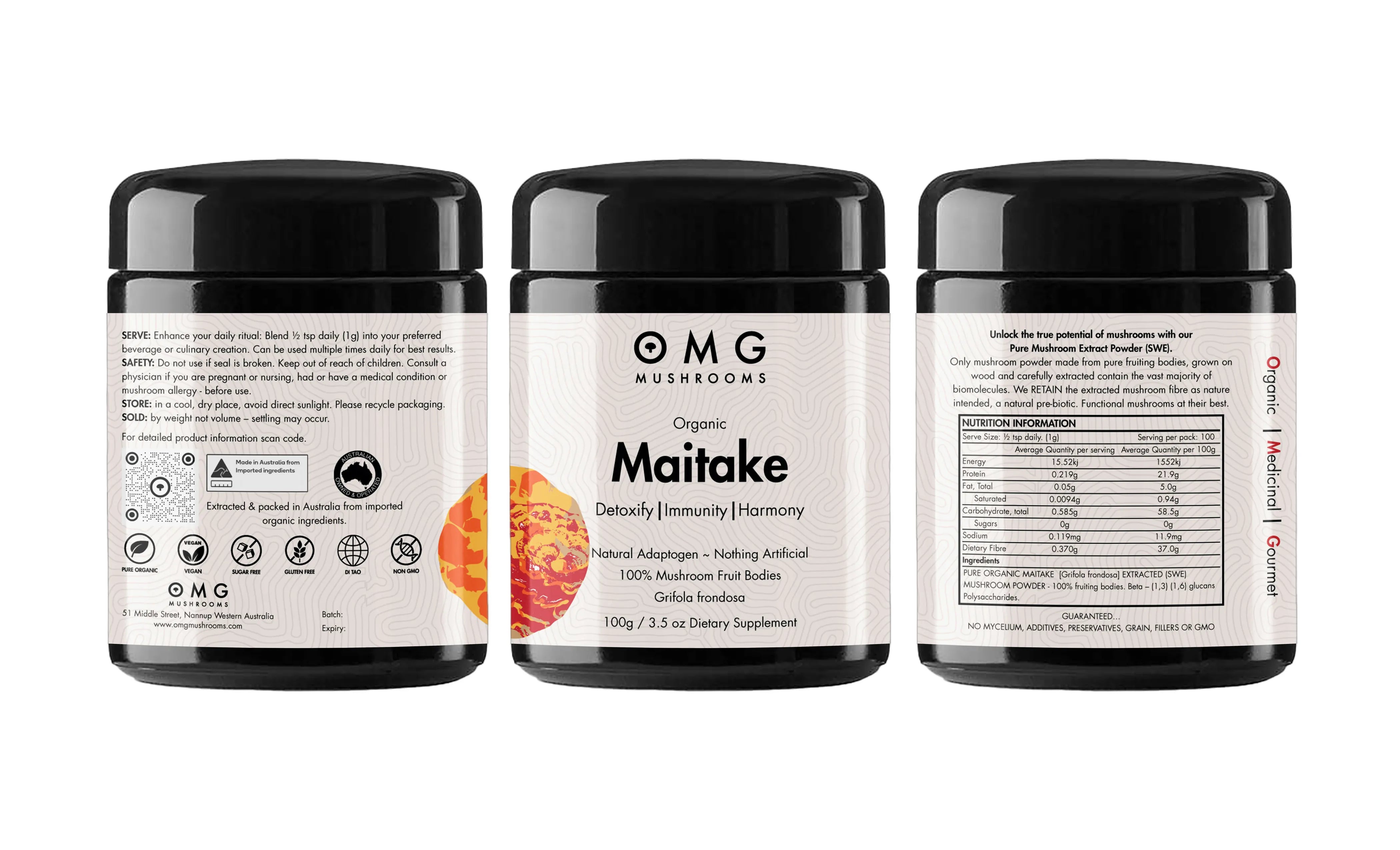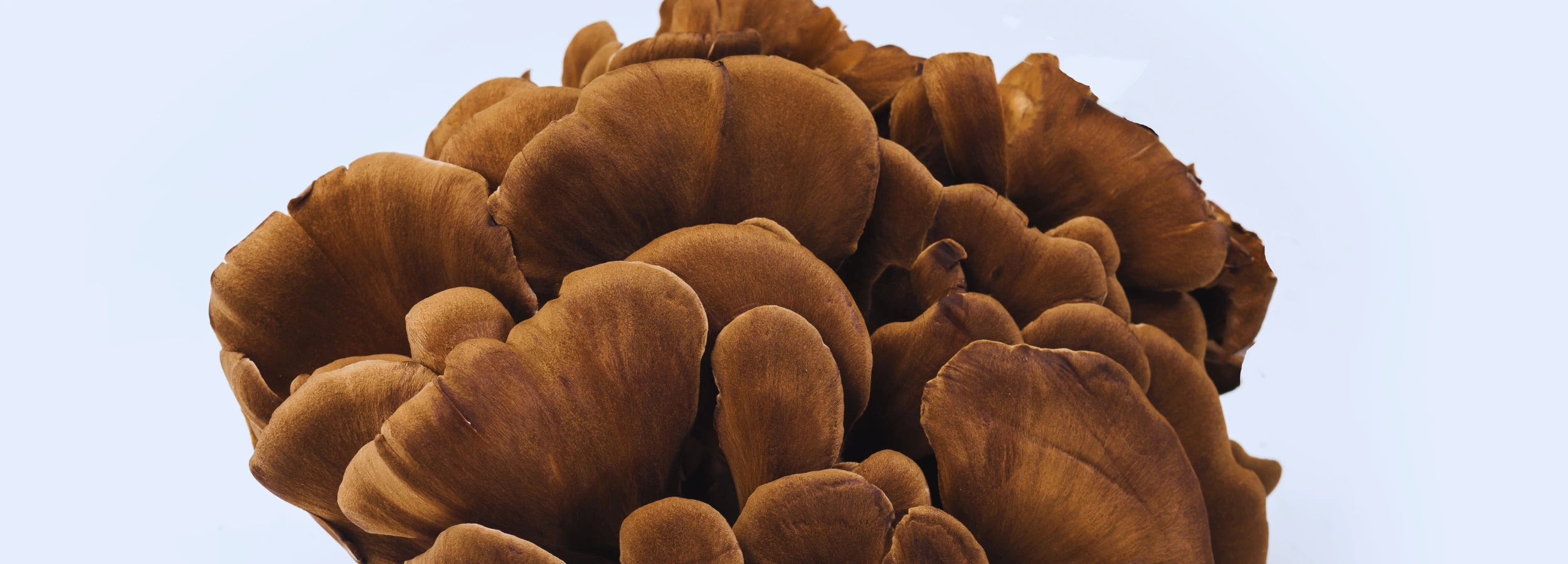Maitake - The Dancing Mushroom
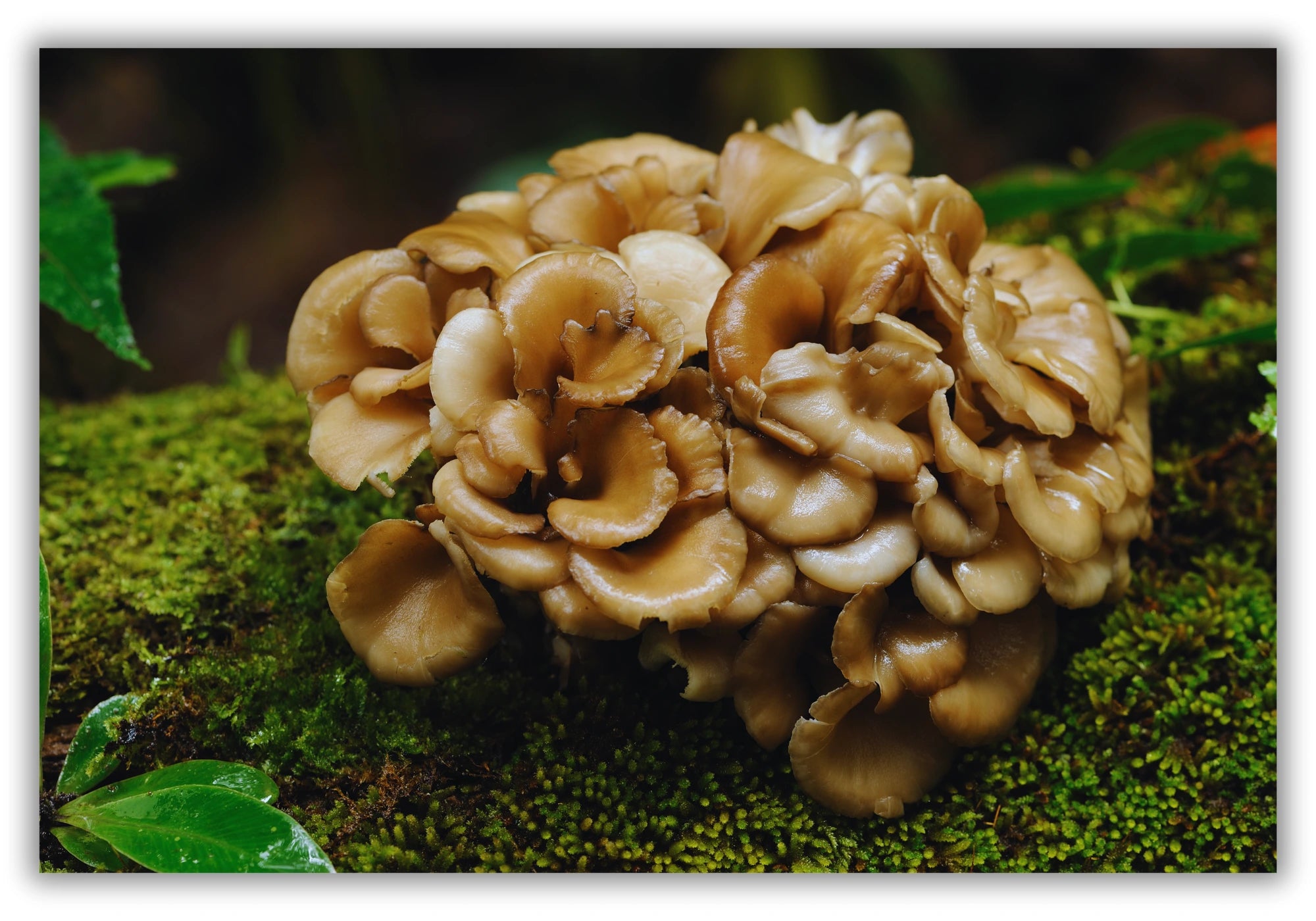
THE ‘DANCING MUSHROOM’
Maitake mushrooms, scientifically known as G. frondosa, boast a remarkable array of health-promoting compounds, including complex beta-glucans, immunomodulators unique to fungi. Going beyond the simplicity of cereal-based beta-glucans, Maitake's intricate structure directly influences its beneficial actions. In addition to beta-glucans, Maitake encompasses an impressive nutritional profile with lectins, enzymes, provitamin D, and essential vitamins and minerals like B vitamins, magnesium, phosphorus, and potassium. The combination of bioactive molecules and nutrients makes Maitake a subject of extensive scientific exploration for its potential applications in various health domains.
Over the last three decades, Maitake has undergone rigorous scientific scrutiny, revealing its substantial medicinal properties and significant contributions to human health. Studies have uncovered its detoxifying effects, along with remarkable immunomodulatory and antitumoral actions. Notably, Maitake has shown promise in improving conditions such as diabetes, hypercholesterolemia, PCOS (polycystic ovarian syndrome), and obesity.
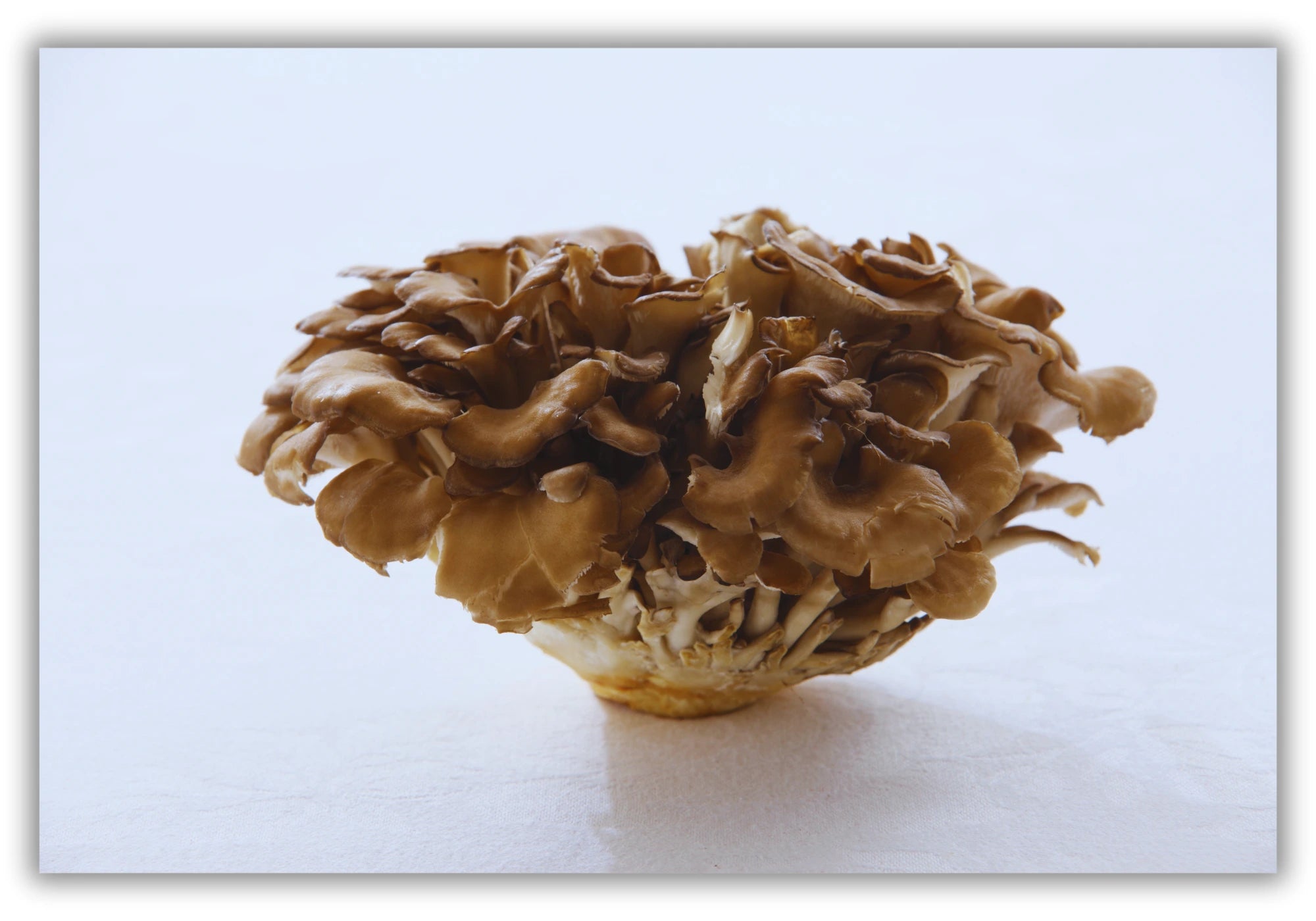
MAITAKE THERAPEUTIC PROPERTIES
Maitake, a remarkable medicinal mushroom, stands alongside Reishi and Shiitake with its unique nutritional composition. While it can be consumed as food, the most concentrated and effective form is Maitake extract, offering benefits for metabolic-endocrine health, weight control, detoxification, cardiovascular well-being, and support during menopause, including cholesterol and triglyceride management.
In the realm of immune support, Maitake shines as an enhancer, activating NK cells and CD4+ lymphocytes. Notably, studies suggest its potential to enhance post-vaccination antibody production, making it relevant in the context of influenza and possibly COVID-19 vaccinations. Maitake contributes to immune system balance, normalizing Th1 lymphocytes and interleukin IL-2, showcasing antiviral properties against HIV and hepatitis B.
The mushroom's impact extends to digestive and metabolic health, demonstrating hepatoprotective effects against toxic liver disease and proving beneficial in liver cirrhosis. Maitake exhibits anti-diabetic properties, preventing the progression of autoimmune conditions, reducing insulin resistance, and offering support during menopause. Additionally, its hypotensive and chelating qualities make it a valuable ally in eliminating toxins and heavy metals.
For the female reproductive system, Maitake extract shows promise in addressing Polycystic Ovarian Syndrome (PCOS), inducing ovulation and serving as adjunctive therapy for those who haven't responded to conventional treatments. Maitake's diverse benefits, supported by scientific studies, position it as a valuable asset in holistic health, including menopausal well-being and integrative care
Featured collection
PRODUCTS WITH MAITAKE
FUN FACTS
The Dancing Mushroom: The name "Maitake" in Japanese translates to "dancing mushroom." According to folklore, people would dance with joy upon finding this prized mushroom in the wild due to its esteemed medicinal properties and culinary value.
The Mushroom's Embrace: Maitake is known for its unique growth habit, forming large clusters that resemble a tightly packed bouquet. The overlapping layers of caps create a captivating visual, and its appearance has led to the affectionate nickname "Hen of the Woods."
MYCOLOGICAL NOTES
This fungus belongs to the Poriaceae family within the Poriales order. Known as Maitake in Japanese, which translates to 'Dancing Mushroom,' possibly reflecting its distinctive shape. Maitake consists of clustered small carpophores, creating the visual impression of an orderly floral arrangement along a central axis. The overlapping caps, displaying a grayish-brown hue, mimic the pattern seen in traditional Japanese dances.
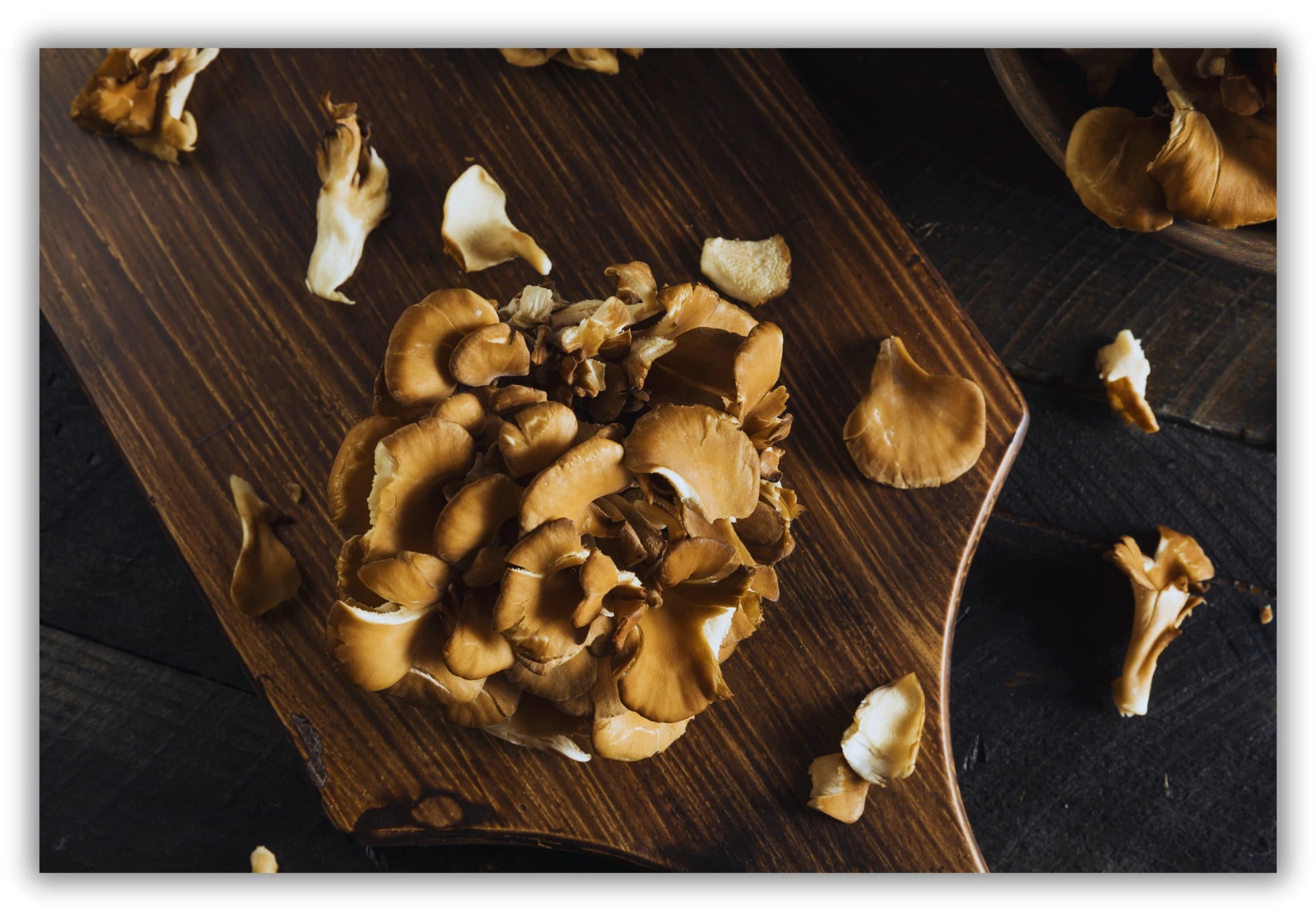
MAITAKE CULTIVATION
This medicinal fungus primarily thrives on aged or inert chestnut or oak trees. In commercial cultivation however, Maitake is commonly nurtured on sterilized sawdust or deceased tree trunks. The cultivation methods focus on maintaining controlled environments with precise regulation of temperature, humidity, and avoidance of direct sunlight to ensure optimal growth conditions. This systematic approach ensures consistent and high-quality Maitake yields, catering to both culinary and medicinal demands.
Despite being relatively lesser-known in Australia, Maitake holds significant popularity as an edible mushroom in Asia, particularly in Japan.
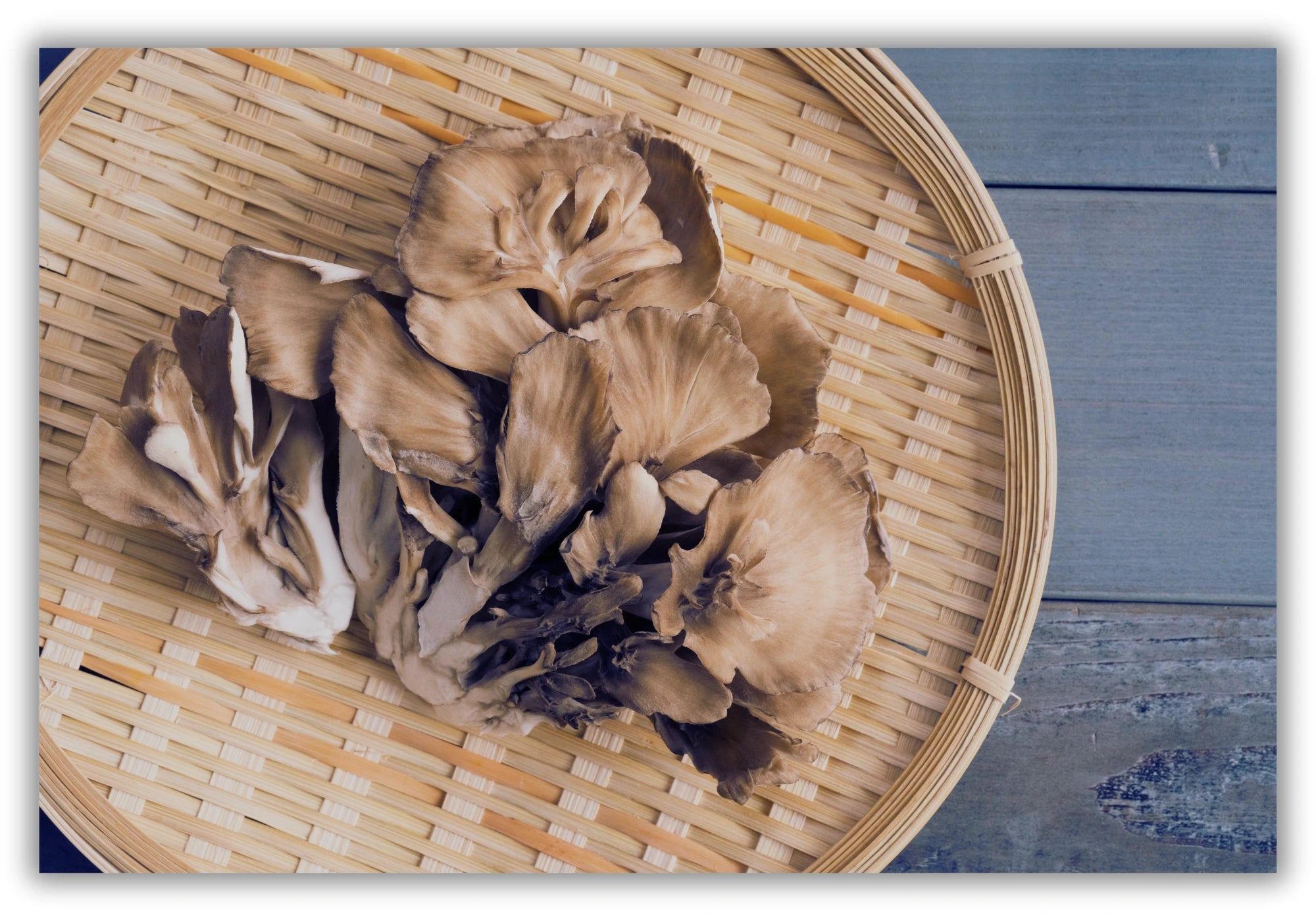
MAITAKES MYSTERIES: The Unsung Hero of Fungi
The wealth of scientific evidence supports the exploration of Maitake as a valuable resource for enhancing overall well-being and addressing specific health challenges.
Among medicinal mushrooms, Maitake might be the underappreciated hero, but exciting developments are on the horizon. Women, in particular, have reasons to be intrigued particularly as it pertains to menopause.

